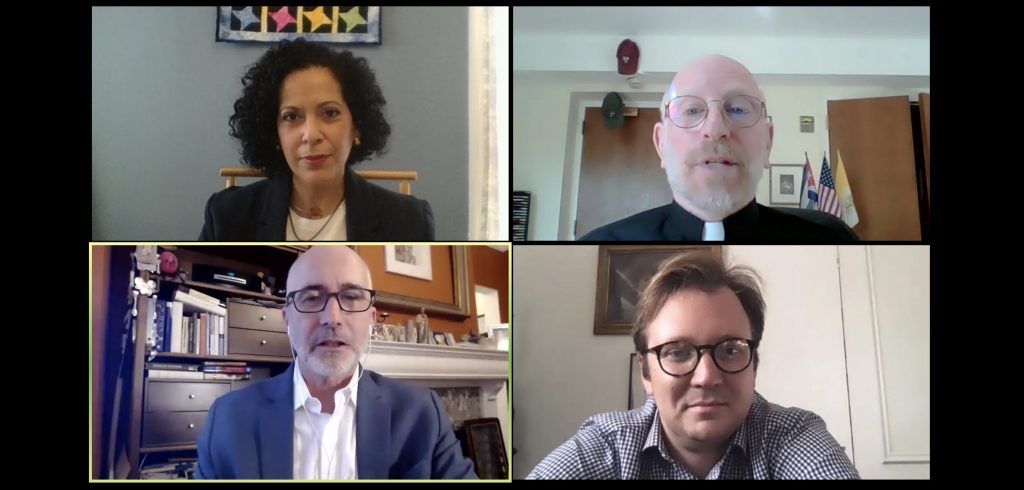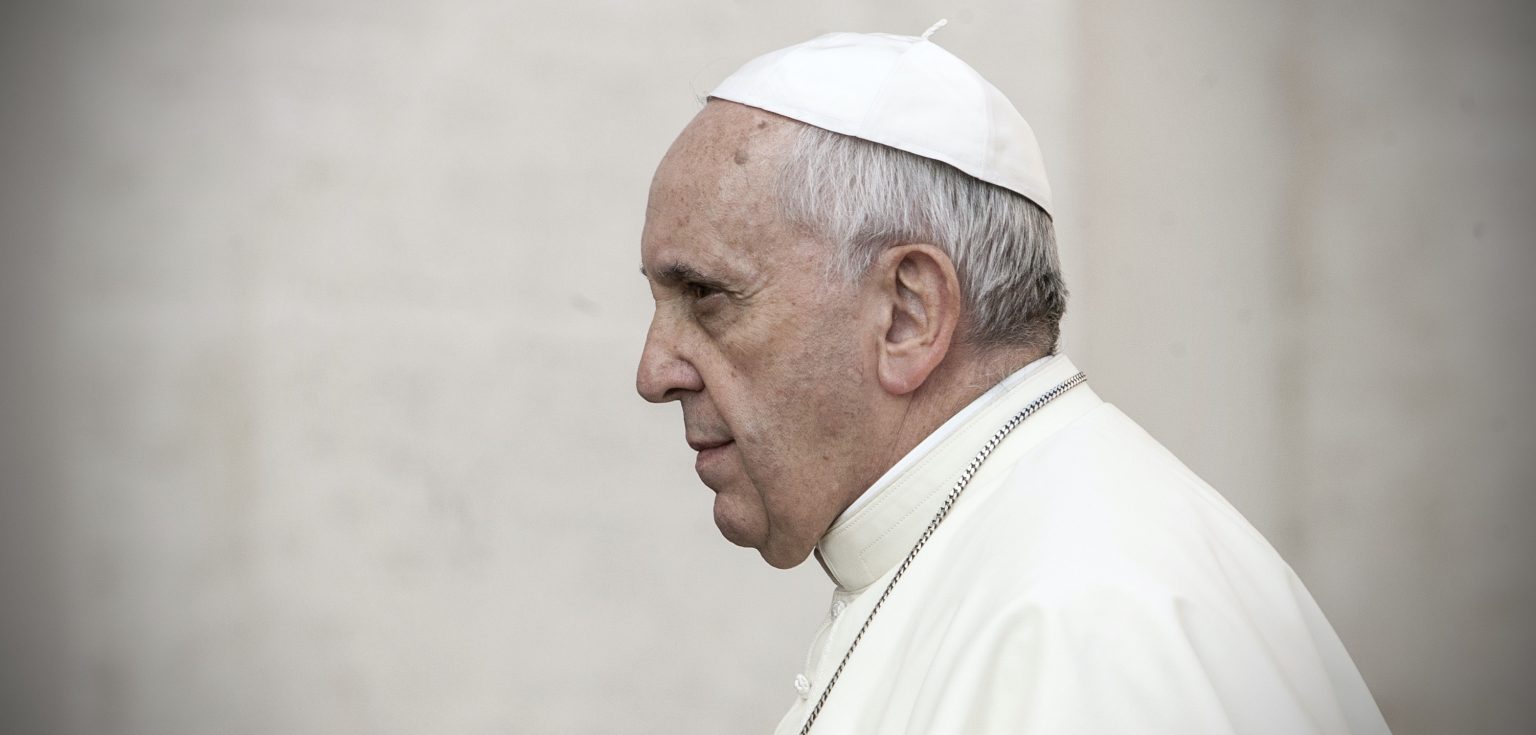Just weeks before the American presidential election, a Fordham panel of scholars analyzed the latest encyclical from Pope Francis—a U.S.-focused document that condemns trickle-down economics and addresses racism and the hardships of the global pandemic, especially those faced by the poor.
“The U.S. more than any other nation is mentioned a number of times, and I feel like this is a direct address in many ways to U.S. Catholics,” said María Teresa Dávila, a leading expert in Christian ethics and guest panelist at the Fordham Zoom webinar on Oct. 7. “And we need to sit with that.”
‘Solidarity in the Wake of Crisis’
On Oct. 4, the Vatican released Pope Francis’s third encyclical—the most authoritative document a pope can issue. The 43,000-word document, titled “Fratelli Tutti,” or “Brothers All,” called for “imagining a new social order based on solidarity in the wake of the crisis and opportunity posed by the global pandemic,” said David Gibson, director of Fordham’s Center on Religion and Culture, who moderated the hour-long discussion co-sponsored by the CRC and the Curran Center for American Catholic Studies.
Gibson was joined by three experts on Catholic social teaching and the Vatican: María Teresa “MT” Dávila, Ph.D., an associate professor of practice at Merrimack College in Massachusetts; Thomas Massaro, S.J., Ph.D., a Fordham professor of moral theology who has written nine books and more than 100 articles about Catholic school teaching and public policy; and Christopher Lamb, the Rome correspondent for The Tablet, a regular contributor to the BBC and author of The Outsider: Pope Francis and His Battle to Reform the Church (Orbis Books, 2020), who joined the conversation live from London.
The pope’s long encyclical can be condensed into a statement on the pros and cons of five critical topics—globalization, populism, politics, private property, and social communication—said Father Massaro, and it also suggests several concrete calls to action.

A Call to Affluent Nations
“Pope Francis wants to do something concretely to make the world better through collective action, and that especially includes reaching out to the poor, the marginalized,” Father Massaro said. “And there’s a special appeal … to residents of affluent nations to change their lifestyles, whether that’s to help the environment or to help other people.”
The pope also condemned trickle-down economics and argued for policies that provide better educational opportunities and jobs.
“He’s not trying to abolish capitalism, but he’s asking a legitimate question about whether capitalism is serving a tiny elite or is capitalism actually doing what it’s supposed to do and helping everyone?” said Lamb, adding that the pope’s critique aligns with Catholic social teaching and the gospels.
But to many people, his new vision sounds too much like socialism, said Dávila.
“The current political climate in the U.S. has been one where that’s been the voodoo—the word that’s being used to lunge at particular politicians who speak either about universal health care, state-sponsored health care, and other measures for relief from the pandemic and things like that,” Dávila said. “It becomes in the U.S. almost a framework that’s impossible to talk about without making it partisanship.”
Gibson said the pope also addressed a topic that has great relevance everywhere, but especially now in the United States: racism.
A Platform to Examine Historical Racial Injustice
“The Pope has very good, strong language. ‘Racism is a virus,’ he writes, ‘that quickly mutates and, instead of disappearing, goes into hiding, and lurks in waiting.’” Gibson said. “There isn’t really much further in that … Does he address that systemically enough? Or is it just kind of a billboard slogan?”
Dávila said that in the encyclical, Pope Francis also stressed that you cannot have forgiveness that fails to acknowledge history. She argued that the section is a “vindication of the Black Lives Matter movement” and a map for the kinds of conversations about racial justice that need to take place within the church.
“I’m going to take that as a platform [where]I can push Catholics to say, let’s look at our history. Let’s do what Georgetown and other institutions are doing and look at our buildings, look at how they’re named, look at where our funds came from 200, 250 years ago when we were trying to build X or Y dioceses. Did we take over certain lands that didn’t belong to us? Did we use slave labor in building our institutions in the U.S? And really come to a reckoning that takes history seriously,” said Dávila, whose work focuses on immigration, racism, racial justice, class, and inequality.
The pope has been clear that he doesn’t have the answer to every single local issue, said Lamb, but his encyclical provides the framework to begin solving problems. Now it’s up to Catholics on the ground, he said, to put his global message into practice.
Dávila concluded, “I’m hopeful that we are able to have those conversations that take that narrative back, away from political pundits, cultural wars, media spectacle, and toward a more robust vision of the common good … I’m hopeful because I’m tired of the polarizations of the past 20, 25, 40 years, but especially the last 20 years.”
Watch the full webinar in the video below:

